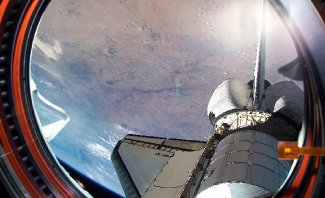Space tourism: the final frontier

HOW WOULD YOU LIKE to look out of a window and see the curved horizon of the Earth stretching before you, then unbuckle your harness and float from your seat? Hold onto your hats, folks, for it’s the aim of a brand-new industry to give you experiences like these – and more.
The first genuine, self-funded tourist flight into space took place in 2001, when American entrepreneur Denis Tito paid an estimated US$20 million to visit the International Space Station.
His controversial week-long trip was made possible by a spare seat on a routine Soyuz flight to the ISS – and the fact that the Russian Space Agency was strapped for cash. There have been four similar tourist trips since, with more to come, along with a purpose-built spacecraft able to carry two fare-paying passengers into orbit.
Meanwhile, American company Bigelow Aerospace is developing orbiting modules with the unlikely property of being inflatable. Surprisingly, they are likely to offer good protection against micrometeorite impact because of their flexibility, and offer a potentially inexpensive way of building space stations for a variety of purposes.
The company was founded by hotel mogul Robert Bigelow, so tourism is definitely one of them. Orbiting hotels promise an out-of-this-world experience, but a stay won’t be cheap.
Slightly more affordable – at least for the well-heeled – are sub-orbital holiday trips planned by a number of entrepreneurs. Best known is the irrepressible Richard Branson, whose Virgin Galactic is scheduled to begin operating soon.
Once the rocket motor cuts out at a speed of 1.2 km/s, the spacecraft and its occupants become weightless for three minutes as the vehicle climbs to about 110 km above the Earth then falls back to the lower atmosphere, where it brakes before landing.
The US$200,000 fare includes three days’ training for the two-and-a-half-hour flight, but Virgin’s -booking lists are already filling up. Down the track, Virgin is planning night flights through the aurora borealis.
It’s tempting to dismiss space tourism as a diversion for the very rich, but it’s likely these ventures will play a significant role in humankind’s emergence as a space–faring species…and put a rocket under our exploration of the solar system.
Fred Watson is Astronomer-in-Charge of the Anglo-Australian Observatory at Coonabarabran in north-western NSW.
Source: Australian Geographic (92) Oct – Dec 2008
RELATED STORIES

